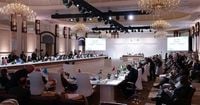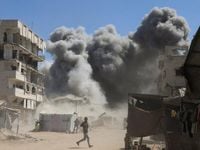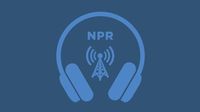On September 14, 2025, diplomatic tensions in the Middle East reached a boiling point as Qatar hosted an emergency summit of Arab and Muslim leaders in Doha, just days after an Israeli missile strike targeted senior Hamas officials residing in the Qatari capital. The attack, which occurred on September 9, rattled the Gulf region and sent shock waves through international diplomatic circles, threatening to upend ongoing ceasefire negotiations in the war-ravaged Gaza Strip.
According to Reuters, the Israeli strike killed six people—five members of Hamas and a member of Qatar’s internal security forces. The attack took place in a residential neighborhood in broad daylight while Hamas leaders were reportedly meeting to discuss a U.S.-backed proposal aimed at ending the conflict in Gaza. The timing and location of the strike could hardly have been more provocative: Qatar, a key U.S. ally and longtime mediator in the Israeli-Palestinian conflict, had been hosting official negotiations between the parties, with the knowledge of the Israeli side.
Qatar’s Prime Minister and Foreign Minister, Sheikh Mohammed bin Abdulrahman Al Thani, minced no words in his condemnation. Addressing Arab foreign ministers in Doha on Sunday, he declared, “This attack can only be described as state terrorism, an approach pursued by the current extremist Israeli government, which flouts international law.” He added, “The reckless and treacherous Israeli aggression was committed while the state of Qatar was hosting official and public negotiations, with the knowledge of the Israeli side itself, and with the aim of achieving a ceasefire in Gaza.”
The Israeli government, for its part, was quick to defend its actions. Prime Minister Benjamin Netanyahu took to social media on September 13, stating, “The Hamas terrorists chiefs living in Qatar don’t care about the people in Gaza. They blocked all ceasefire attempts in order to endlessly drag out the war. Getting rid of them would rid the main obstacle to releasing all our hostages and ending the war.” Netanyahu’s remarks reflected frustration with what he described as Hamas leaders’ obstruction of peace efforts, and he warned Qatar to either expel Hamas officials or “bring them to justice, because if you don’t, we will.”
Yet the consequences of the attack extended far beyond the immediate loss of life. The strike drew sharp international condemnation—including from Israel’s own allies—who viewed it as a violation of Qatar’s sovereignty. According to The New York Times, even the United States, which has long relied on Qatar as a strategic partner in the Gulf and as a mediator with Hamas, expressed unease. U.S. President Donald Trump reportedly told Qatari Emir Sheikh Tamim bin Hamad Al-Thani that “such a thing will not happen again on their soil,” acknowledging Qatar’s key role in efforts to broker peace.
The emergency summit in Doha brought together foreign ministers and heads of state from across the Arab and Islamic world. The agenda was clear: to formulate a unified response to Israel’s “hostile acts” and to support Qatar in the face of what many leaders described as a dangerous escalation. A draft resolution circulated ahead of the summit, as reported by Reuters, warned that “the brutal Israeli attack on Qatar and the continuation of Israel’s hostile acts including genocide, ethnic cleansing, starvation, siege, and colonizing activities and expansion policies threatens prospects of peace and coexistence in the region.” The resolution went on to caution that such actions could undermine or even reverse normalization agreements between Israel and several Arab states, including the landmark Abraham Accords of 2020.
Qatar, for its part, has remained steadfast in its commitment to mediation. Sheikh Mohammed bin Abdulrahman Al Thani insisted that Israel’s actions would not deter Doha’s efforts to work with Egypt and the United States to secure a ceasefire in Gaza. “It is time for the international community to stop applying double standards and punish Israel for all the crimes it has committed,” he said, calling for real, tangible measures to prevent further escalation.
The Israeli strike also reverberated through the Gulf’s economic and political landscape. Analysts noted that while a military response from Gulf states was unlikely—given their reliance on American military support and their focus on domestic stability—regional leaders could wield significant financial and diplomatic leverage. Sovereign wealth funds in the Gulf control trillions of dollars in assets worldwide, and there was speculation that these resources could be used to pressure Israel or its allies should the conflict continue to escalate.
The ongoing war in Gaza, which began on October 7, 2023, after Hamas militants launched a deadly attack on southern Israel, has already exacted a staggering toll. According to local health officials cited by AP and Reuters, more than 64,000 Palestinians have been killed in Israeli offensives—about half of them women and children. The initial Hamas attack killed around 1,200 people, mostly civilians, and resulted in the abduction of 251 hostages. As of mid-September 2025, Israel believes 48 hostages remain in Gaza, with 20 presumed alive.
Meanwhile, the humanitarian crisis in Gaza has worsened. On the same day as the Doha summit, at least 48 people were killed by Israeli artillery shelling and gunfire in Gaza City, according to Al Jazeera. Israel is reportedly preparing for a large-scale operation to seize the city, ordering hundreds of thousands of residents to flee south to designated “humanitarian zones”—areas that are already overcrowded and lack basic necessities. Many Palestinians have been reluctant or unable to move, citing the absence of any truly safe refuge.
The summit in Doha was also marked by calls for the international community to hold Israel accountable. Arab League Secretary-General Ahmed Aboul Gheit warned that “silence in the face of a crime ... paves the way for more crimes.” Hamas officials, for their part, expressed hope that the gathering would produce “a unified and decisive Arab–Islamic stance” on the war, as reported by AP.
Yet, as leaders debated next steps, the path forward remained uncertain. The attack on Qatar has complicated already fraught ceasefire negotiations, with both Qatar and Egypt reportedly considering whether to continue their roles as mediators. The Abraham Accords and other normalization efforts with Israel now hang in the balance, as Gulf states weigh their responses to what they see as a direct threat to regional stability and their own sovereignty.
As the dust settles in Doha, the region finds itself at a crossroads. The Israeli strike has galvanized Arab and Muslim leaders, but whether their unity will translate into meaningful action—or a new chapter of escalation—remains to be seen.



